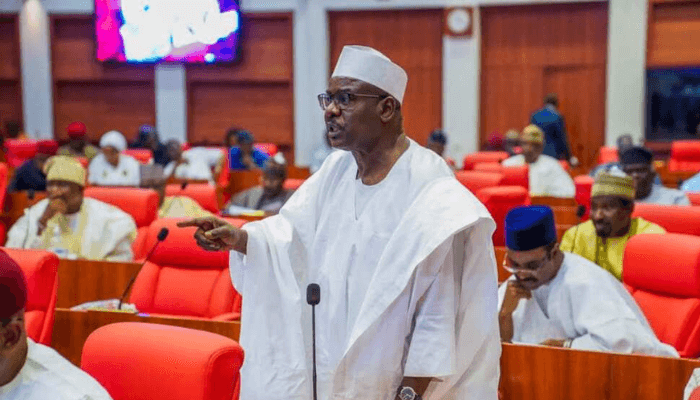The All Progressives Congress (APC) has formally asked for the resignation of Senator Ali Ndume, representing Borno South, from the party.
Furthermore, the party has asked him to relinquish his position as Chief Whip of the Senate.
This request was made in a letter addressed to Senate President Godswill Akpabio, which was subsequently read on the floor of the upper legislative chamber on Wednesday.
Abdullahi Ganduje, national chair of the APC; and Ajibola Basiru, national secretary of the party; nominated Tahir Monguno, senator representing Borno north, to take Ndume’s place.
The APC accused Ndume of making hurtful comments against the administration of President Bola Tinubu.
Sen. Tahir Munguno has replaced Sen. Ali Ndume as Senate Chief Whip
In a voice vote, the upper chamber took the unanimous resolution to effect the replacement, after a letter of complaint against the unbecoming utterances of the chief whip, Sen. Ali Ndume by the APC National Headquarters, was read by the President of the Senate, Sen. Godswill Akpabio.
Recall that Ali Ndume, chief whip of the senate, said President Bola Tinubu has shut his doors on some of his ministers in an interview with BBC Hausa.
The senator was speaking on the economic hardship and food insecurity in the country.
Ndume said members of the national assembly do not have access to the president on the issues plaguing their constituencies.
“The major problem with this government is that its doors are closed, to the extent that even some ministers cannot see the president,” he said.
“Not to mention members of the national assembly who do not have the opportunity to meet with him and discuss the issues affecting their constituencies.
“We want to draw the government’s attention to the fact that Nigeria is not only facing a high cost of living but also food scarcity. We want the president to intervene on the issue of high cost of living and food scarcity.
